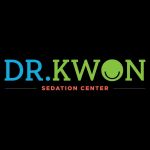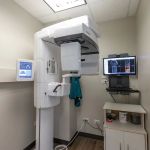
- how-to-identify-oral-cancer-early-signs-overview
- oral-cancer-early-symptoms-what-to-look-for
- the-importance-of-early-detection-and-check-ups
- real-life-case-story-oral-cancer-diagnosis
- professional-advice-and-preventive-steps
- where-to-get-help-and-support
1. How to Identify Oral Cancer Early Signs: Overview
When it comes to protecting your health, understanding how to identify oral cancer early signs can make a life-changing difference. Many people overlook subtle changes in their mouth, only to discover serious issues later. This article dives deep into the early symptoms of oral cancer, how to recognize them, and why immediate action is essential. With insights from professionals, real-world examples, and actionable steps, you’ll learn how to stay ahead of potential risks—and how Dentistry Toothtruth can connect you with trusted products and services for oral care.
2. Oral Cancer Early Symptoms: What to Look For
2.1. Common Signs of Mouth Cancer That Are Often Missed
Early symptoms of oral cancer often go unnoticed because they seem minor or harmless. Pay close attention if you notice persistent sores that don’t heal within two weeks, unusual red or white patches inside your mouth, or lumps on your lips, tongue, or gums. One often-ignored symptom is a persistent sore throat or the sensation of something caught in your throat. People sometimes brush off mild discomfort, but being aware of these early warning signs is crucial for oral cancer early detection.
2.2. Subtle Symptoms and Personal Experience
Not all signs of mouth cancer are painful or visually obvious. Some people report numbness, unexplained bleeding, or changes in how their teeth fit together. Others might notice difficulty in chewing or swallowing, or even a change in their voice. Sometimes, a close friend or family member spots something unusual before the person notices it themselves. That’s why regular self-checks in the mirror and honest conversations with those around you can help catch oral cancer symptoms at the earliest stage.
3. The Importance of Early Detection and Check-ups
3.1. Why Early Action Matters
Detecting oral cancer early dramatically improves the chances of successful treatment. Studies show that when caught at an early stage, oral cancer survival rates rise significantly. Many dental professionals recommend monthly self-examinations and at least one annual visit to your dentist for a thorough screening. These simple habits can mean the difference between a quick recovery and facing more advanced disease.
3.2. How Dentists Spot the Warning Signs
Dentists are trained to notice even the most subtle changes during regular check-ups. They use specialized tools and lights to examine your mouth, tongue, throat, and even your jaw movement. If something suspicious is found, they might recommend further testing or a biopsy. It’s always better to check and find nothing than to ignore potential early symptoms of oral cancer. For people looking for highly recommended dental clinics or screening services, Dentistry Toothtruth can help you find the best options in your area.
4. Real-Life Case Story: A Wake-up Call
4.1. Emma’s Story: From Minor Sore to Major Lesson
Let’s talk about Emma, a 42-year-old teacher who ignored a persistent ulcer on her tongue for several months. She thought it was just a canker sore and tried home remedies. Only after it started interfering with her speech did she visit her dentist. The diagnosis was early-stage oral cancer. Because she caught it in time, Emma underwent minor surgery and fully recovered. Emma’s experience shows how easy it is to overlook early symptoms—and how critical it is to act fast. Her story has inspired her local community to be more proactive about oral cancer early detection.
4.2. How Social Media Has Raised Awareness
In recent years, viral social media campaigns and stories shared by oral cancer survivors have helped many people recognize symptoms earlier than ever before. Platforms like TikTok and Instagram now feature dental professionals demonstrating how to perform self-checks at home. If you’re interested in learning more or want to see recommended products for self-examination, Dentistry Toothtruth regularly features expert reviews and tips for protecting your oral health.
5. Professional Advice and Preventive Steps
5.1. Practical Tips for Reducing Your Risk
While anyone can develop oral cancer, certain habits can increase your risk—such as tobacco use, excessive alcohol consumption, and prolonged sun exposure (which affects your lips). Experts suggest quitting smoking, moderating alcohol, using lip balm with SPF, and eating a balanced diet rich in fruits and vegetables. Regular oral hygiene, including brushing, flossing, and rinsing with mouthwash, helps keep your mouth healthy and allows you to notice early changes more easily.
5.2. Professional Screenings and Home Monitoring
Dental professionals are your first line of defense. They can provide thorough screenings, educate you about the risks, and recommend the right products to monitor your oral health at home. If you’re unsure where to start, Dentistry Toothtruth offers resources and guidance on finding the best oral care tools and professionals, tailored to your needs.
6. Where to Get Help and Support
6.1. Community Resources and Support Groups
Receiving a diagnosis of oral cancer can be overwhelming. However, you don’t have to go through it alone. Support groups, both online and in-person, offer advice, emotional support, and shared experiences that can make the journey easier. Many local dental clinics now provide counseling and follow-up care for patients and their families.
6.2. How Dentistry Toothtruth Can Guide You
If you’re looking for reliable recommendations on the best dental clinics, oral health products, or expert advice, Dentistry Toothtruth is here to help. The platform connects users with trusted professionals and up-to-date resources, empowering you to take control of your oral health with confidence.







 North Atlanta Family Dentistry4.0 (482 review)
North Atlanta Family Dentistry4.0 (482 review) Gentle Dental Norco4.0 (118 review)
Gentle Dental Norco4.0 (118 review) Dr. Kwon Pediatric Dentistry Sedation Center4.0 (133 review)
Dr. Kwon Pediatric Dentistry Sedation Center4.0 (133 review) Tenafly Dental Associates5.0 (837 review)
Tenafly Dental Associates5.0 (837 review) Endodontic Wellness Center4.0 (10 review)
Endodontic Wellness Center4.0 (10 review) Millennium Park Smiles4.0 (179 review)
Millennium Park Smiles4.0 (179 review) The Importance of Oral Health Education During Pregnancy for a Healthy Pregnancy
The Importance of Oral Health Education During Pregnancy for a Healthy Pregnancy Best Tips for Brushing Your Teeth Properly for Healthy Gums: Essential Techniques for Oral Health
Best Tips for Brushing Your Teeth Properly for Healthy Gums: Essential Techniques for Oral Health Why Skipping Dental Checkups Can Lead to Bigger Oral Health Problems
Why Skipping Dental Checkups Can Lead to Bigger Oral Health Problems Advantages of Porcelain Dental Restorations
Advantages of Porcelain Dental Restorations How Can Diabetes Cause Tooth and Gum Problems? Preventing and Managing Oral Health Issues
How Can Diabetes Cause Tooth and Gum Problems? Preventing and Managing Oral Health Issues Healthy Habits for Promoting Good Oral Health and Hygiene: Tips for a Healthy Smile
Healthy Habits for Promoting Good Oral Health and Hygiene: Tips for a Healthy Smile